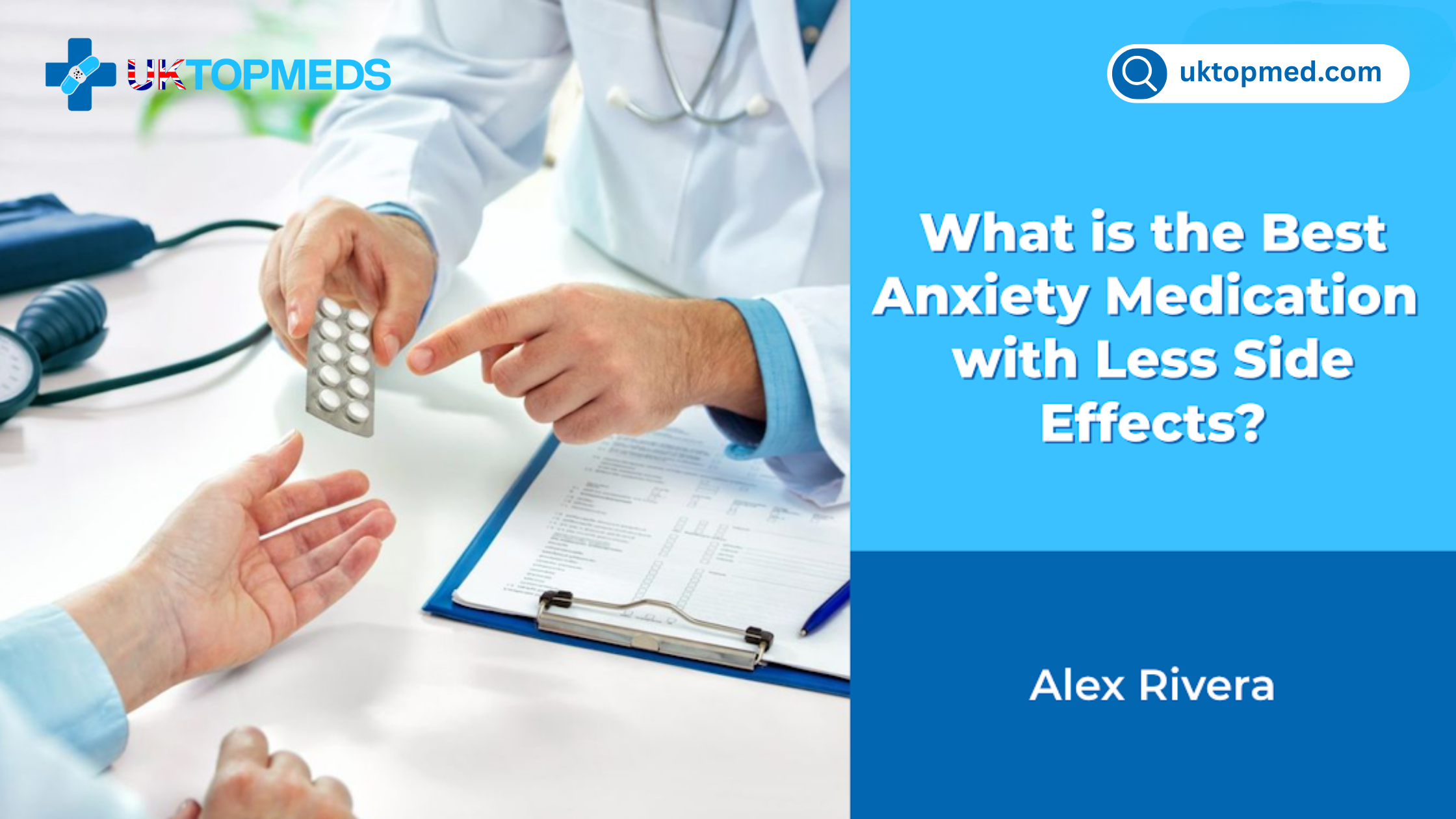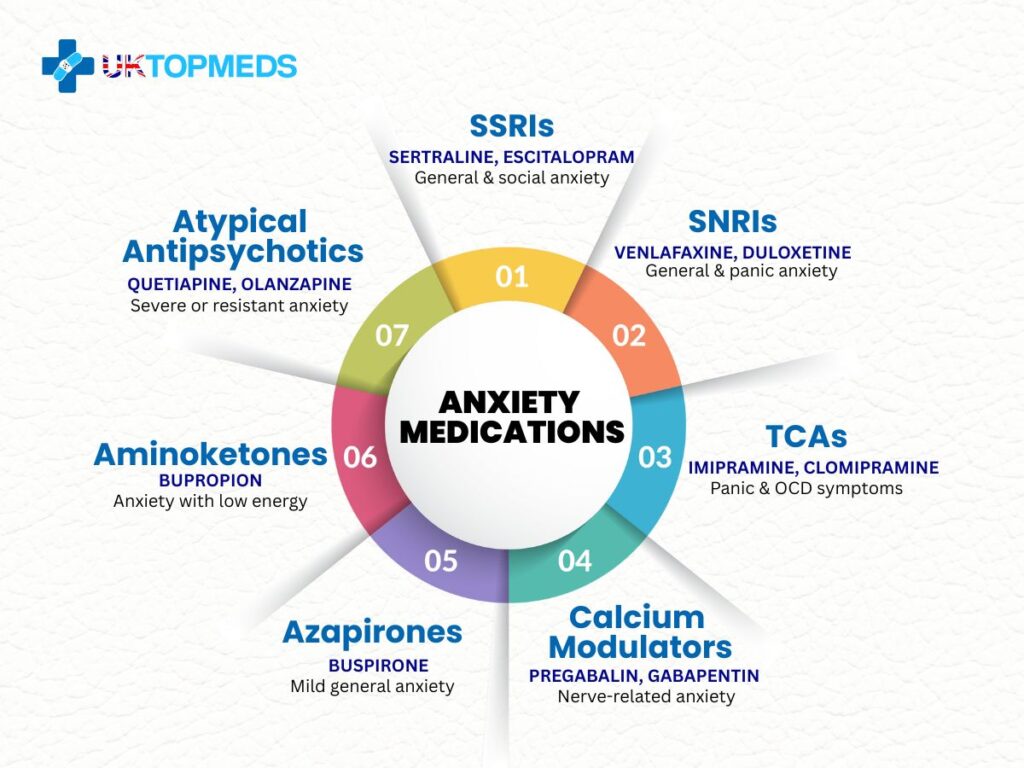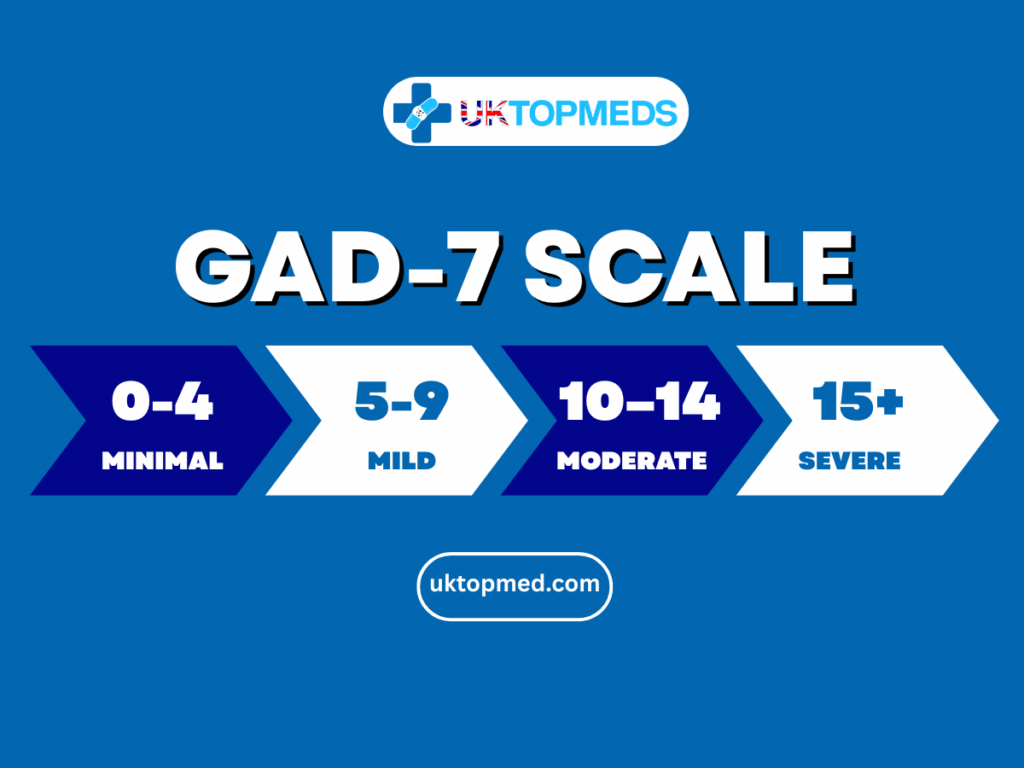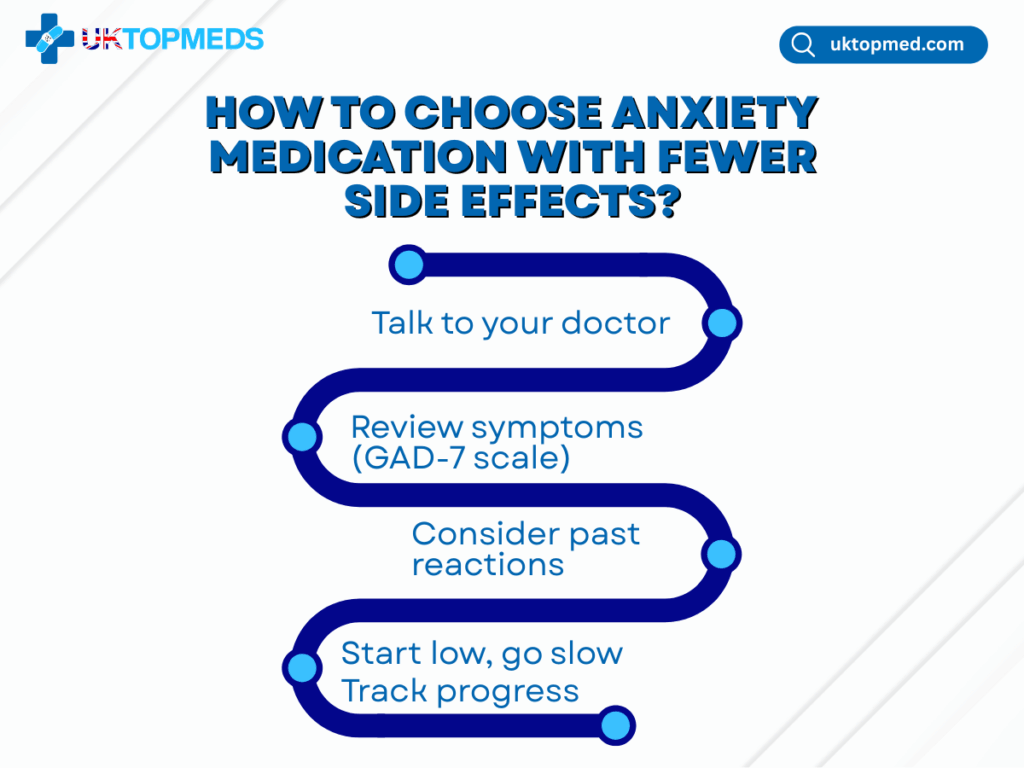No products in the cart.
You dont have any products in your cart yet, add a few products to experience this experience.
What is the Best Anxiety Medication with Less Side Effects?

Bone pain is localised, deep and sharp, while muscle pain is a widespread soreness along the length of the muscle. Bone pain is easier to spot and feels more intense. Muscle pain is a general, dull ache caused by minor injury, strain, or overuse. Bone ache is present whether you move or not, while muscle pain worsens with movement or when you use the affected muscle. Pain in any part of the body profoundly impacts your life functions. Talk to your healthcare provider in case of severity of pain and prevent further damage.
Anxiety is a widespread issue that significantly impacts an individual’s life and functions across the world. It can adversely affect your job, school performance, and relationships. A great many medications can relieve anxiety, but they may have adverse effects. Selecting an ideal anxiety medication with fewer negative impacts is a challenge. So, what is the best anxiety medicine with fewer unwanted reactions? This article describes the types of antidepressants with low side effects and how to choose them.
Anxiety Medications with Fewer Side Effects
The following is a list of anti-anxiety meds that are the first-line treatment for anxiety and are expected to cause few side issues:
Selective Serotonin Reuptake Inhibitors (SSRIs)
SSRIs are the most widely recommended classes of medicines used to reduce anxiety and depression. They work by lowering the reabsorption of serotonin, adding to the available amount. Serotonin is a neurotransmitter in the brain that helps uplift mood and treat mental health conditions. SSRIs can take time to improve depression and anxiety symptoms. Most medications take anywhere from 2 to 6 weeks to see maximum effects. Medicines in this group include:
The effectiveness of these meds depends on what condition they are dealing with.
Selective Serotonin Norepinephrine Reuptake Inhibitors (SNRIs)
It’s a type of anxiety medicine that functions on another neurotransmitter in the brain called norepinephrine. Similar to SSRIs, they mitigate reabsorption and enhance the neurotransmitters in the brain. The types of medicines in this class are:
Tricyclic Anti-Depressants (TCAs)
TCAs are a type of medication not as commonly used as SNRIs and SSRIs. But patients unable to react to other general medicines can tolerate them. These belong to an older group of meds that can be used more often for panic disorder.
Calcium Modulators
Calcium modulators are generally used to manage seizure disorders and nerve pain. They also help treat anxiety disorders. Medicines in this class include:
- Gabapentin
- Pregabalin
Azapirones
In this class, only one medication, Buspirone, is used regularly to alleviate the symptoms of anxiety disorders.
Aminoketones
The Aminoketone group has only one main medicine, Bupropion. Doctors also use Bupropion to help people quit smoking, and, when combined with naltrexone under the brand name Contrave, it helps with weight loss.
Its exact way of working isn’t fully known, but it’s believed to affect dopamine and norepinephrine, two key brain chemicals linked to mood and energy.
Atypical Antipsychotics
Atypical antipsychotics are mainly used for conditions like schizophrenia and bipolar disorder. They’re also being studied as add-on treatments for anxiety and depression. In some cases, doctors may advise them alone if other medicines haven’t worked well.

Who Should Take Anxiety Medication?
Deciding to take anxiety medicine is a personal choice. Your doctor will help you figure out if medicine is the right option. They may use a scale called the Generalised Anxiety Disorder 7-item scale, or GAD-7, to measure your anxiety level. It includes seven questions, each is graded 0 to 3.
A total score between 10 and 14 means moderate anxiety, while 15 or more means severe anxiety. Medicine can help but there’s no anxiety medication completely free of side effects. Your healthcare professional can help you choose one with fewer and milder effects that still works well for you.

Possible Side Effects of Anxiety Meds
Anxiety medicines can ease your mind and help you feel calm, but like all treatments, they may cause minor health problems. Talking to your doctor can help you find a medicine that works best with the fewest negative reactions.
Here are the potential side effects commonly seen with anxiety medications that are still considered low in adverse effects:
- Nausea or upset stomach
- Headache or mild dizziness
- Restlessness or jitteriness
- Fatigue or sleepiness
- Trouble sleeping or vivid dreams
- Weight changes or changes in appetite
- Dry mouth or thirst
- Constipation or diarrhoea
- Blurred vision
- Balance problems
- Sweating or tremors
- Reduced sexual desire
- High blood pressure or cholesterol changes.
- Difficulty focusing in a few people
How to Choose Anxiety Medication with the Fewest Side Effects?
The best anxiety medicine for you depends on what effects your body can tolerate and how you respond to them. Everyone reacts differently, and not all people experience the same reactions. There’s no medication completely free of side effects, but some cause fewer problems than others.
Newer medicines often cause fewer issues, but it still depends on the person. Your doctor can look at your health condition and any other medicines you take. The best option is the one that works well for your symptoms and fits safely with your current treatment plan.

FAQs about Anxiety Medications with Few Side Effects
How long can you take anxiety medicine?
It depends on your condition and how well you respond. Some people use it for a few months, while others may need it longer under a doctor’s care.
What to know before starting anxiety medication?
You should know that it can take time to work and may cause mild reactions at first. Always follow your doctor’s advice and never stop suddenly.
How to buy anxiety pills online?
Buy anxiety pills online from a registered and verified pharmacy, UKTopMeds. Visit our product page, find your product, and add it to the cart. We deliver your selected products within 1-2 working days.
Do anxiety meds cause side effects?
Yes, most can cause common side effects like nausea, tiredness, or dizziness. But they usually fade as your body adjusts.
What are the benefits of anxiety medication?
Medications for anxiety are used to treat depression, improve sleep, and make it easier to manage daily life with more confidence.
Conclusion
If anxiety is making daily life hard, medicine can help ease your symptoms along with therapy and healthy habits. There isn’t one perfect option for everyone, without side effects, but your doctor can help find one with the least possible issues. The right choice depends on things like your diagnosis, medical history, goals, symptoms, and how your body handles certain medicines. Working closely with your mental health provider can make treatment safer and more effective.

Alex Rivera
Alex Rivera is a Doctor of Pharmacy and a clinical researcher with over 15 years of experience in drug development and pharmacology. His work focuses on the efficacy and safety of new medications, and his articles provide in-depth analysis on drug interactions, side effects, and pharmaceutical innovations. Michael is committed to promoting medication safety and patient-centric care.



